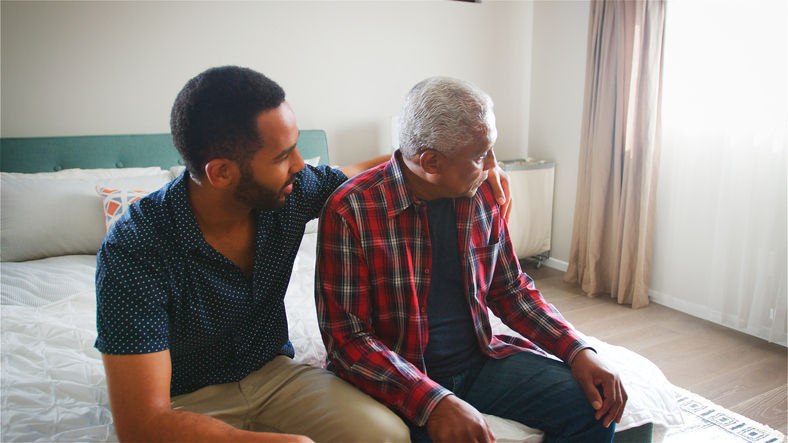Caregiving During a Pandemic
- Elder Care Law Blogger
- Jul 21, 2020
- 2 min read
Updated: Oct 6, 2022

By Barbara McGinnis, CELA
Being a caregiver is challenging enough on its own, but a pandemic understandably makes it even more so. Maybe you have been a caregiver for a while. Or maybe the coronavirus has made you a caregiver overnight looking after those who are in a more vulnerable population due to age or pre-existing conditions. Either way, these are unchartered waters for everyone, so be gentle on yourself. Forget about perfection. Mistakes will be made, but guilt will get you nowhere. Below are some suggestions to help you weather the storm.
Practice social distancing, but not social isolation
Isolation can be detrimental for anyone, but especially for seniors. Regularly scheduled phone calls and video conferences along with texting and emails can help compensate for a lack of in-person contact. Church often plays a huge role in seniors’ lives. Help your loved ones access online services offered by their congregations so they can still feel connected to their church families. Good old-fashioned handwritten notes and cards can also offer connection and comfort.
Utilize technology
We are so fortunate to live in a time of such innovative technology. Take advantage of grocery delivery services and pharmacy delivery options to cut down on potential exposure to the virus. Use telemedicine to avoid unneeded trips to the doctor’s office. Doctors can typically diagnose and prescribe medication using video conferencing instead of face-to-face visits. If your loved one is in a facility limiting visitors due to the virus, ask staff to help your loved one face-time with friends and family to switch things up from regular phone calls.
Reach out for help
It is impossible to do this alone. What is your back-up plan should you become sick? The stress of being a caregiver can take a tragic toll on your health. Many caregivers predecease their loved ones because of failure to care for themselves and ask for assistance. Enlist other family members, close friends or people at your church.
Have a Plan B
Formulate a plan in case you or another family member should become sick. If you are the main caregiver, designate another family member or friend who could step in case of emergency. Stock up on supplies. There is a difference between hoarding and being prepared. Experts advise having at least two weeks’ worth of groceries, pet food, and essential items, in addition to one to two months’ worth of prescription medication.
Don’t forget to take care of yourself
It isn’t selfish to take time for yourself. It is essential. Make an effort to stay connected to your social network. Schedule time on your calendar to take a walk, call a friend, or watch a movie. You cannot care for someone if you are not well.
If you find yourself in the role of caregiver for an elderly loved one and you need help, Takacs McGinnis is here for you. Just give us a call at (615) 824-2571.







Comments